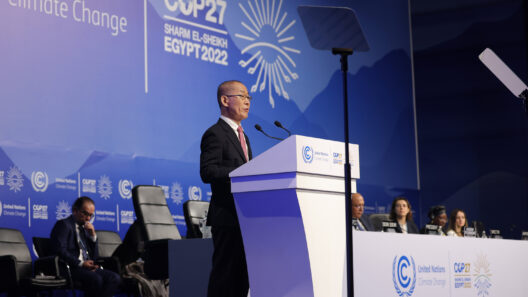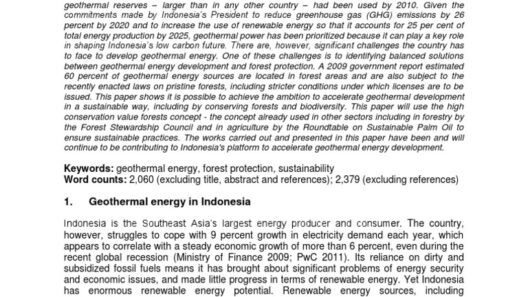In the modern economy, the landscape of business opportunities is as vast as an uncharted ocean, teeming with potential yet fraught with hidden dangers. Among the islands dotting this expansive sea, energy conservation emerges as a vibrant and legitimate business opportunity. It is akin to discovering a rich vein of gold in the hills; it offers not only financial prospects but also something truly invaluable—environmental sustainability. In this exploration, we will delve into the confluence of profitability and ecological responsibility, examining the multifaceted dimensions of energy conservation as a business endeavor.
The concept of energy conservation is fundamentally grounded in the judicious use of resources. It involves the deliberate and strategic reduction of energy consumption through various means, such as enhancing efficiency, implementing innovative technologies, and embracing behavioral changes. This approach is not merely an abstract ideal; it is a burgeoning industry that has garnered the attention of savvy entrepreneurs and established corporations alike. As the world grapples with the repercussions of climate change and dwindling natural resources, the clarion call for sustainability resonates with increasing urgency. This presents an opportune moment for businesses to pivot toward energy-efficient practices and solutions.
To appreciate the breadth of energy conservation as a business opportunity, one must consider the symbiotic relationship between innovation and necessity. The advent of renewable energy technologies, such as solar panels, wind turbines, and energy-efficient appliances, has catalyzed an entire sector that thrives on the promise of reduced energy consumption. Just as the caterpillar transforms into a butterfly, businesses that adopt energy conservation measures undergo a metamorphosis—from traditional, energy-guzzling operations to agile, eco-conscious players in the market. This transition not only enhances their reputation but also attracts a clientele increasingly attuned to sustainability.
As organizations embrace energy conservation, a myriad of business models have emerged. Energy audits, for instance, have gained traction as a service that assesses energy use within commercial and residential spaces. These audits provide invaluable insights, empowering clients to identify inefficiencies and implement corrective measures. Similarly, the burgeoning field of energy management software offers businesses the tools to monitor real-time energy consumption, analyze data, and optimize usage. By leveraging such technologies, companies can forge a path toward profitability while contributing to a more sustainable world.
Moreover, the regulatory environment surrounding energy conservation is evolving rapidly. Governments worldwide are recognizing the imperative of reducing carbon footprints and are instituting policies and incentives to foster energy-efficient practices. Tax credits, rebates, and grants serve as fertile soil for new businesses to take root. Companies that position themselves as early adopters in this arena can reap substantial rewards, capturing market share before the competition takes notice.
The appeal of energy conservation extends beyond the economic realm; it resonates on a deeper, ethical level. In a world where environmental degradation poses existential threats to humanity, businesses that prioritize sustainability can foster a sense of corporate social responsibility. This alignment with the values of consumers—who are increasingly making purchasing decisions based on a company’s environmental impact—can lead to enhanced brand loyalty. Just as the gentle rain nurtures the parched earth, businesses that invest in energy conservation can cultivate lasting relationships with their clientele.
However, the journey toward energy conservation is not without its challenges. One significant hurdle is the upfront cost associated with implementing energy-efficient solutions. Despite the long-term savings, many businesses may be deterred by the initial investments required. This is where strategic financial planning and innovative financing models come into play. Options such as power purchase agreements (PPAs) and energy-as-a-service (EaaS) frameworks can mitigate financial burdens, enabling organizations to adopt energy conservation measures without prohibitive costs.
Furthermore, the energy conservation sector is characterized by an ever-evolving landscape of technology and consumer preferences. Companies must remain agile, ready to adapt to emerging trends and advancements. The rise of the Internet of Things (IoT), for instance, has ushered in a new era of smart energy management. Devices connected to the internet can communicate and optimize energy use in real-time. As businesses harness these innovations, they not only enhance their operational efficiency but also position themselves as pioneers in a dynamic field.
The ecological ramifications of energy conservation are profound and far-reaching. Reducing energy consumption diminishes greenhouse gas emissions, conserves finite resources, and lessens the strain on the planet’s ecosystems. This positive impact serves as a powerful motivator for businesses to embrace sustainability not only as a responsibility but also as a competitive advantage. In this regard, energy conservation becomes a tapestry of opportunity, interwoven with the threads of profitability and ethical stewardship.
Ultimately, the question of whether energy conservation is a legitimate business opportunity finds its answer in the burgeoning demand for sustainable solutions and the innovative spirit of entrepreneurs. As the world continues to awaken to the necessity of energy efficiency, businesses that can navigate this terrain with foresight and creativity will not only thrive but will also contribute to a more sustainable future. The winds of change are blowing favorably for those who choose to embark on this voyage of energy conservation, urging them onward toward the shores of opportunity and innovation.







